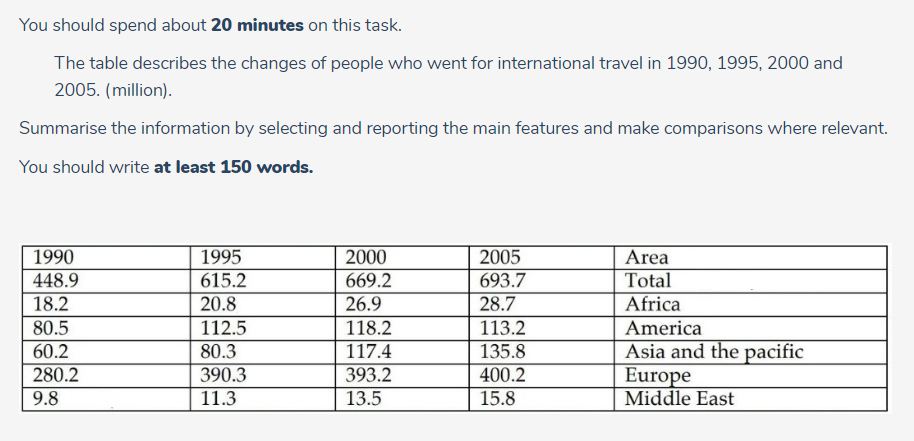The table shows the number of visitors that traveled to five countries in four years: 1990, 1995, 2000 and 2005.
As I can see from the table, the country that had the most visitors in four years was Europe and the country that had the fewest visitors was the Middle East. There was also a gradual increase over four years in Asia and the Pacific, except for Africa and America. These two countries have witnessed a slow decrease in the number of visitors over the past four years.
In 1990, Europe was the country that had the highest number of people who came here to travel, which was 280.2 million. Over five years, Europe witnessed a dramatic increase in the number of people who came to travel, which was more than a hundred million people. However, from 2000 to 2005, the number of people who came to Europe increased slightly, from about 3 million to 7 million.
In 1990, there were only 9.8 million visitors who came to the Middle East. From 1995 to 2005, the number of people increased slightly. It just went up from 9.8 million to 15.8 million in 2005.
As I can see from the table, the country that had the most visitors in four years was Europe and the country that had the fewest visitors was the Middle East. There was also a gradual increase over four years in Asia and the Pacific, except for Africa and America. These two countries have witnessed a slow decrease in the number of visitors over the past four years.
In 1990, Europe was the country that had the highest number of people who came here to travel, which was 280.2 million. Over five years, Europe witnessed a dramatic increase in the number of people who came to travel, which was more than a hundred million people. However, from 2000 to 2005, the number of people who came to Europe increased slightly, from about 3 million to 7 million.
In 1990, there were only 9.8 million visitors who came to the Middle East. From 1995 to 2005, the number of people increased slightly. It just went up from 9.8 million to 15.8 million in 2005.

Untitled.png
